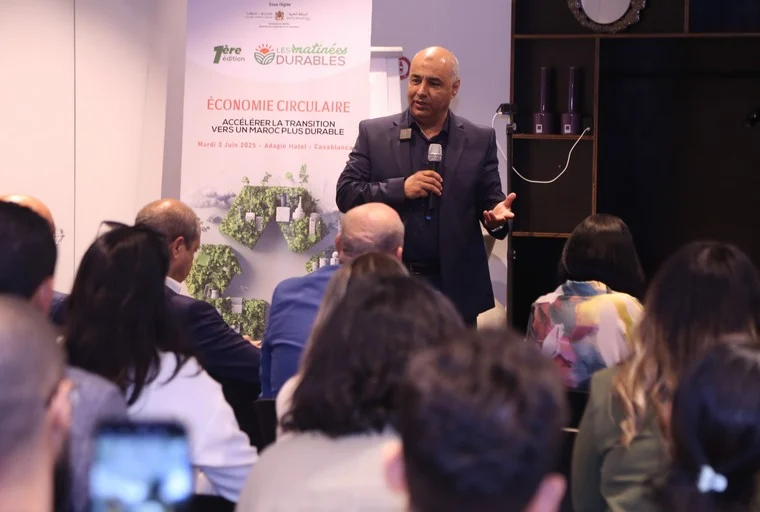Under the theme “The Circular Economy: Accelerating the Transition to a More Sustainable Morocco,” this edition provided an opportunity for speakers to thoroughly examine the multiple challenges, particularly in waste management, recycling, and accelerating the transition to a circular economy, while sharing best practices and concrete solutions to these challenges.
Speaking on this occasion, the publisher of Consonews, Nabil Taoufik, indicated that “The Sustainable Mornings,” initiated under the auspices of the Ministry of Industry and Trade, are dedicated to exploring issues related to sustainable development, energy transition, and climate change, in connection with all environmental problems.
“We feel an urgent need for increased media involvement in these themes, in order to play a driving role in raising awareness among citizens and consumers,” he said.
This first edition, Mr. Taoufik noted, emphasizes the circular economy, which is based on the principle that nothing should be wasted, as well as on a resource use that respects their renewal, without harming ecosystems or compromising supply sources.
He also highlighted the importance of analyzing the concrete conditions for implementing this circular economy, particularly to avoid the production of waste that could be harmful to the environment and, by extension, to human well-being.
For his part, Hassan Chouaouta, a specialist in development and strategic and sustainable monitoring and circular economy, and general director of Impact Plus, emphasized that the circular economy is a major strategic issue for Morocco, facing a scarcity of natural resources, the need to operationalize national strategies, and the organization of major international events such as the Africa Cup of Nations 2025 and the World Cup 2030.
In this regard, he deemed it imperative to generate “Made in Morocco” success stories in the field of waste recovery, lamenting that to date, recovery rates remain low (less than 7% for household waste and less than 8% for industrial and hazardous waste).
In light of this observation, Mr. Chouaouta noted that the time has come to establish genuine structured strategies, accompanied by action plans and operational implementations at the territorial and local level.
According to him, it is about maximizing the recovery of waste, whether it is plastics or household waste.
“We must reverse this logic and actively promote recycling, especially since we have the skills and means necessary to do so,” he said.
This first edition of the “Sustainable Mornings” revolved around two panels on “the regulatory and strategic framework of the circular economy in Morocco” and “Circular Industry – Concrete Cases and Feedback.”
During these panels, a clear connection was established between companies that offer waste recovery solutions and those that produce waste. This direct connection facilitated continuity in reflection and opened the way for discussions on concrete, pragmatic, and potentially operational solutions in the short term.


